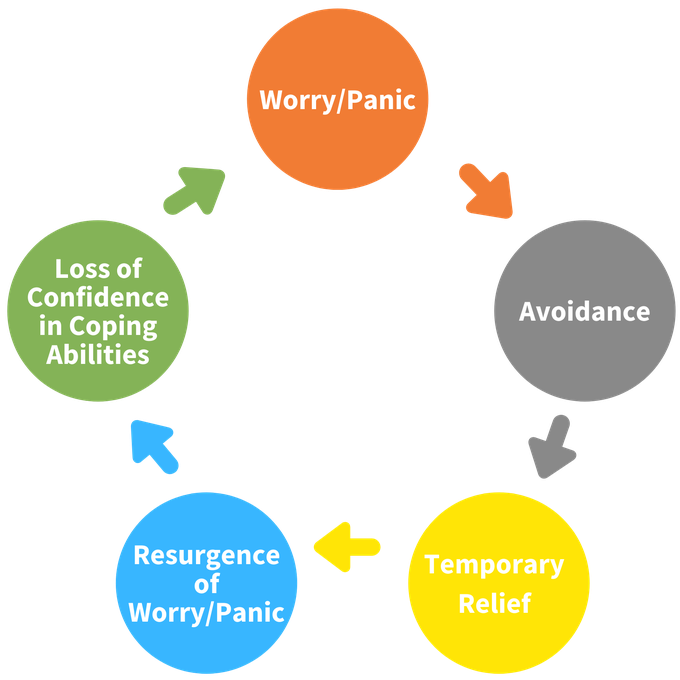

Moderate Symptoms: Symptoms keep the child from doing some normal activities.School, play, relationships and sleep have not changed. Mild Symptoms: Symptoms do not keep the child from any normal activities.When your child is anxious or worried, help them talk about their feelings.But, anxiety can be managed so that it does not keep you from doing normal things.It is a normal emotion that will always be part of you. Anxiety is a normal human response to stressful events.They can turn down the volume on anxious thoughts. SSRI meds may also be prescribed by a provider. Treatment, if frequent: Cognitive Behavior Therapy (CBT).Side effect: patient avoids social settings for fear of having an attack.How often attacks happen: no set pattern.Triggers of attacks: life stressors, though many attacks are unexpected.Cause: release of stress hormones as when "under attack".

Risk factors: anxiety attacks are genetic.Normal anxiety, worries and fears also covered.The body goes on 'red alert.' Patient feels like they are dying or losing control of their body. Symptoms are fast, deep breathing (hyperventilation), fast heart rate, feeling dizzy and many others.

Anxiety attacks (also called panic attacks).

That implies a nearly 7% drop from Monday's close. While Hartnett said all the pessimism could be building to a buying opportunity, the relief rally could be short-lived: Bank of America last week slashed its end-year outlook for the S & P 500 to a Wall Street-low 3,600, down from 4,500. In addition to the big cash positions, investors are long defensive stocks and commodities, while taking big short positions in stocks, European assets and discretionary shares in particular. As part of that bleak economic outlook, most investors - a record net of 90% - think inflation will begin to fall but stagflation, or lower growth amid higher-than-normal inflation, will persist. Economic expectations also are getting worse, with a net 79% expecting a weaker economy over the next year, the worst reading in the survey's history going back to 1995. Cash levels rose to 6.1% of portfolios, up half a percentage point to the highest level since October 2001. The net 58% of managers who say they are taking lower-than-normal risk levels rose 10 percentage points from June and actually surpassed Lehman levels, an indicator of just how much fear is spreading amid a decelerating economy, high inflation and weakening corporate earnings. Allocations to stocks among portfolio managers turned the lowest since October 2008, the month after Lehman's fall. The July BofA Fund Manager Survey harkened back to that time. The September 2008 collapse of Lehman Brothers was a watershed moment, tipping off the worst of the Great Financial Crisis and serving as a benchmark for the depths of investor sentiment and market liquidity conditions. "Contrarian Q3 trade is risk-on if no Lehman" while inflation falls and the Fed changes course on policy tightening by Christmas, he added. "Fundamentals poor but sentiment says stocks/credit rally in coming weeks," wrote Michael Hartnett, Bank of America's chief investment strategist. Amid all that bad news comes one bit of hope - that sentiment is so dire it could be setting up a relief rally in the days ahead. The survey, released Tuesday, also indicated pessimism about corporate profits and a belief that while inflation is likely to come down, stagflation isn't going anywhere and the biggest "tail risk" is still that central banks will go too far to bring down soaring price pressures. Investors are in a full-on panic, slashing allocations to stocks and increasing cash levels amid the lowest expectations for economic growth in the history of a closely watched Bank of America survey.


 0 kommentar(er)
0 kommentar(er)
